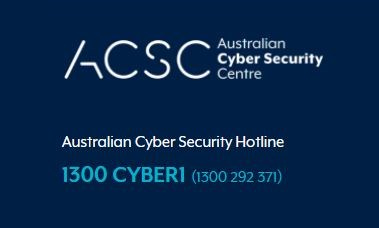Keeping a step ahead of recruitment fraud.
If you’ve received and or responded to a message that you believe may be a scam or have shared your details with someone impersonating a Monadelphous recruiter, please contact us right away careers@monadel.com.au. You can also report scams at Scamwatch.
What is recruitment fraud?
Cyber criminals are always on the lookout for victims. Scammers can pretend to be anyone online to deceive you into trusting them.
They create fake websites to look like well-known brands, impersonate famous people and make it look like they recommend the product or service and set up fake reviews to make you trust them.
The Australian Competition and Consumer Commission (ACCC) reported that over the last year, thousands fell victim to fake online ads, and were tricked into disclosing personal details in the hope of securing work. The ACCC also confirms that consumers continue to be scammed by con artists posting fake job ads via platforms such as LinkedIn, Facebook, Telgram and Google Meet. Please be cautious when dealing with anyone who offers you unsolicited employment or asks for money to progress a job application. We will never ask for a payment, credit card, and we will never request your login details to any system or App.
We are aware that people are being contacted with fake offers of employment from individuals and organisations claiming to represent Monadelphous. In these instances, the Monadelphous name and logo have been used on documentation without authority and the writers have purported to be recruiting on behalf of Monadelphous. We urge you to stay vigilant and look out for the following red flags.
What to look for
Recruitment fraud is becoming increasingly sophisticated, with scammers offering fake job opportunities to job seekers by listing jobs that don’t exist in the hopes of getting either money, or personal details for use in identity theft. They are even lifting active real job content from legitimate advertisers but posting this with alternate contact details. Always do the following:
- Check the email address – Is it a legitimate domain, or is the sender using a free email address such as Yahoo, Live, Hotmail or Gmail?
- Is it an unsolicited communication for a job you didn’t apply for?
- Have you been asked for financial information or to set up an account and provide the details?
- Are they asking for money to pay for work visas, background checks or training? Have you been asked provide personal details like your date of birth, bank details or a copy of your passport or driver's license? A genuine employer won’t ask for these details until they have made a formal job offer and provided a contract with contact details.
- Has the sender asked you to download a messenger type application and be interviewed by direct message? For example, has the contact asked you to set up a Gmail account and contact the hiring manager through Google Hangout, or via Telegram? We do not use any of these platforms or Apps to recruit - Ever.
Always be aware. Take note of the following:
- Verify the email address provided to you. Monadelphous employees only ever conduct email communications via the domain @monadel.com.au
- We will never use Gmail, Yahoo, Hotmail or any other non-official email account to communicate with potential candidates.
- Visit the Monadelphous website, then check the URL, or web address you've been sent – does it match exactly with the Monadelphous domain or is it back to front? Does it have spelling errors? Scammers will use a different variation of the legitimate website address.
- If you would like to understand more about how scammers target people using employment offerings, there is more information available here on the Scamwatch site.
Using common sense
In most cases of recruitment fraud, the individual being approached has not applied for a vacancy with Monadelphous.
Monadelphous never requests money from candidates who seek employment with us and we will never send cheques to people as part of the recruitment process. We will never ask for any form of payment as part of the recruitment process for visa fees, taxes, accommodation, background checks or travel expenses.
Monadelphous will never request your credit card or any other form of personal identification by email or messaging App.
Legitimate information regarding career opportunities with Monadelphous can always be found in current vacancies on our website: https://careers.monadelphous.com.au/work-with-us/current-vacancies/
What should I do if I suspect I'm being scammed?
If you believe you have received a suspicious InMail, email or message, please contact us at careers@monadel.com.au and one of our recruiters will get back to you.
You can also forward any emails you received to the ‘fraud department’ of the provider hosting the scammers email address to request the account be closed:
- Yahoo (Ymail etc.): mail-abuse@cc.yahoo-inc.com
- Google mail (Gmail etc.): abuse@googlemail.com
- Hotmail (Live mail etc.): report_spam@hotmail.com
If you have already disclosed your bank details or received funds into your account, you should contact your bank immediately, and in any case you are unsure of the authenticity of a job ad, or you think you have been a victim of cyber-crime, you should report it to the Australian Cybercrime Online Reporting Network
You can also contact the Australian Cyber Security Centre via the number below.

